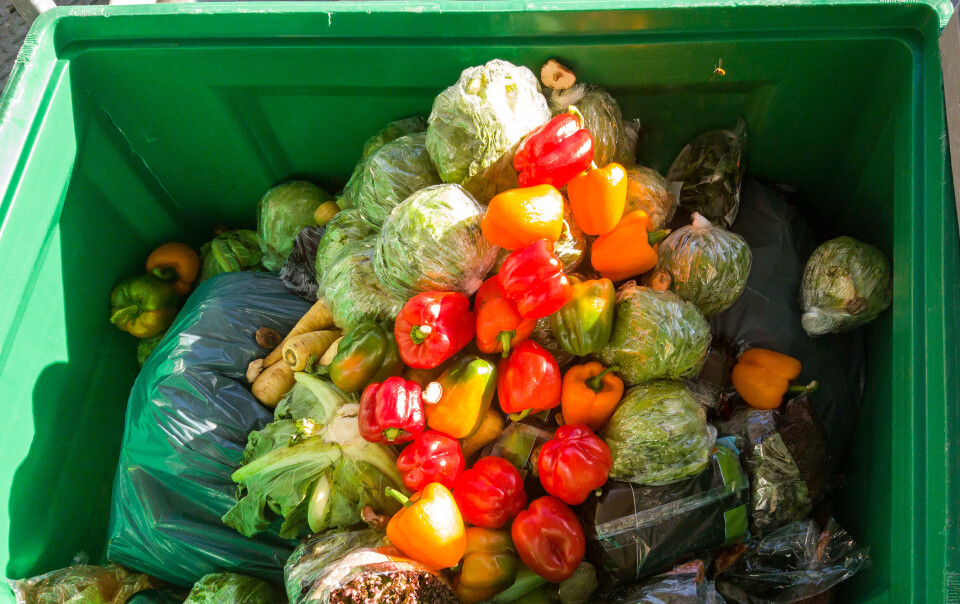-
French boulangeries demand right for staff to work on May 1 so they can open
Artisan bakery owners can work but employees cannot, while certain industrial bakeries are allowed to remain open with workers
-
The magic of mayonnaise: Why a homemade emulsion always woos guests in France
Plus, which shop-bought mayo brand is best?
-
Online ‘anti-waste’ supermarket offers deals on everyday items in France - we test it
Discounts of 10% to 50% available on brand products
Organise your fridge, know labels: French experts’ food-saving tips
A new poll of French people shows they waste €67 a month on average on food which they later throw out and 26-50% of the food they buy ends up in the bin

People could reduce their food waste with a few simple steps, two French associations have told The Connexion, after a study showed that households here throw out around €67 worth of food every month.
The study*, conducted by CensusWide for HelloFresh, found that a quarter of the people polled threw away between 26 and 50% of edible food that they buy.
The Connexion asked members of Au Goût du Jour and France Environnement Nature, two associations fighting against food waste, for tips for using supplies as effectively as possible.
This could prove financially beneficial, considering that inflation has soared over the last year, making food shopping around €224 more expensive per month on average in 2022 than it was in 2021, Allianz Trade has estimated.
Lowering food waste can be divided into two categories: after grocery shopping (Au goût du Jour) and while grocery shopping (France Nature Environnement.)
Read more: Supermarkets in France offer anti-waste measures to help shoppers save
Make a shopping list
“Make a list,” said Laura Chiron, project leader in food prevention at France Nature Environnement, adding that it helps to reduce waste by cutting out unnecessary items and products which you already have in your cupboard.
Ms Chiron advises people to shop with two bags: one for dry items and an insulated bag for meat so as to avoid contamination risks. She suggests ordering items by food type if the shopper only uses a single bag.
When possible, shoppers should favour items that can be measured out such as is now often the case with, for example, nuts or spices in some organic stores. Shoppers tend to only take what they need when they can choose the amount, she said.
Countless studies also show that shoppers buy less when they have just eaten. Shopping while hungry also increases the chances of buying unnecessary and unhealthy products, said Ms Chiron.
“Order your fridge so that items are well positioned,” said Lucie Lobrot, project leader at Au Goût du Jour.
Ms Lobrot said that fruits and vegetables must be placed in the warmest area of the fridge – around 6-8C – and meat in the coldest (around 0-4C degrees).
Yoghurts should be at 4-6C, and people can use a thermometer to work out which areas are best for what.
Ms Lobrot said this is the most efficient tip for reducing food waste because it gives a clearer view of the needs of a household and avoids duplication of items.
Read more: 11 tips to save money on your food shopping in France
Which items are most commonly thrown out?
Bread, fruit and vegetables are the items most commonly thrown away, said Ms Lobrot, who suggested that they are more often wasted because of limited shelf life.
She recommended that people pay closer attention to the wording of sell-by and use-by labels so as to not throw away items which may be past their best but which are still edible.
“Learn the difference between ‘A consommer jusqu’au’ (expires on) and ‘A consommer de préférence avant’, (best before) she said.
The first label means that consuming after the given date could be harmful to your health, while ‘best before’ means that the product remains edible after the given date but could eventually lose nutritional value.
Ms Lobrot said Au Goût du Jour relies on figures studied by the French Environment and Energy Management Agency (Ademe), saying French people waste an estimated 30 kilos of food per year, with seven kilos of this unopened. This equates to one meal per week and €100 per year.
Au Goût du Jour and Ms Lobrot give educational workshops in primary schools in and around Lorient (Morbihan) where children are taught the basics of food consumption and waste.
Following these pieces of advice can lower food waste “very significantly,” said Ms Chiron.
*Study conducted by CensusWide for HelloFresh from May 11 to May 18, 2022 on 1,679 people aged 18 and above.
Read more
French town to become first in Europe to recycle used water
Moneysaver: We try out French app to source cheap shop and cafe food
























